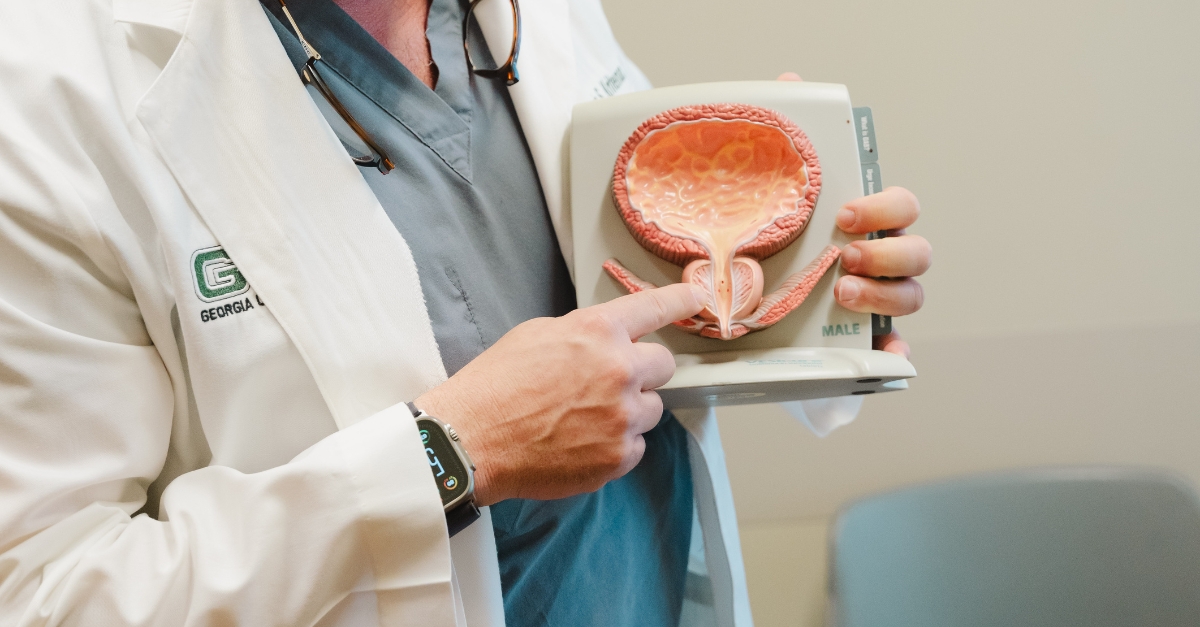

Urinary incontinence, or the unwanted loss of urinary control, affects 13 million people of both sexes and all ages. It is often temporary, and it always results from an underlying medical condition. Four out of every 100 Americans have some symptoms of incontinence. Women and older adults are most at risk of developing some form of incontinence. Often, people are too embarrassed to seek help, think it is a normal part of aging or unaware that help is available.
The symptoms range from frequent and urgent urination to difficulty emptying the bladder and urinary leakage. Fear of accidents can prevent people from participating in activities and dramatically affect their quality of life.
Fortunately, there IS treatment including many new medical therapies and minimally invasive surgeries. The experienced urologists at Georgia Urology are skilled in the management and treatment of all types of urinary incontinence. Our patients benefit from these life changing procedures by being able to resume their lives without anxiety and shame.
Cause
Incontinence has many different causes. Urine normally collects in an internal sac called the bladder. Incontinence may occur when muscles that keep the bladder closed weaken or are too active. Nerve damage, infection or the use of certain medications also may result in incontinence. Causes may include:
- Congenital anominalies such as spina bifida
- Pregnancy and vaginal delivery are risk factors
- Obesity.
- Certain foods and drinks that irritate the bladder, such as caffeine, carbonated drinks, spicy foods, and acidic foods
- Urinary Tract Infection
- Chronic Constipation
- Enlarged prostate (BPH)
- Prostate cancer
- Back surgery or injury
- Diseases of the central nervous system (stroke, Parkinson’s disease, Multiple Sclerosis, neurogenic problems in children)
- Trauma, irradiation, or other injuries to the lower urinary tract and pelvic organs
- Pelvic Organ Prolapse including prolapse of the bladder, vagina, uterus, rectum, or bowel
Symptoms
Incontinence may come on so gradually that you don’t realize what a problem it has become.
If you would like to know whether you have bladder or urinary control problems, answer the Urinary Control Problems Questionnaire. If you answer “yes” to two or more questions, you may have bladder control problems and should seek medical attention.
Complications
Besides the social stigma of embarrassing odor and wetness, skin may become irritated by urine.
Diagnosis
Our urologist will ask about your symptoms, past surgeries, prior treatment for incontinence and any medications you take. If you have received previous treatment for incontinence, bring those records or x-rays with you to the appointment. A urine sample or other testing may be ordered. The diagnosis will determine the treatment or management that is best for you.
Treatment
Treatment is personalized to your needs and diagnosis. Often, multiple treatment options for each situation will exist and it will be up to you to select the best, first option to try.
Possible treatments may include:
- Muscle strengthening
- Electronic stimulation
- Medicine
- Surgery
- Periodic catheterization
Post-Prostatectomy Incontinence
If you suffer from post-prostatectomy incontinence, our physicians would be happy to discuss the following surgical options, both of which will produce at least 95% success rates in properly selected patients.
- Artificial Urinary Sphincter (AUS): an inflatable cuff that wraps around the urethra, connected to soft, flexible, biocompatible tubing, a control pump that sits in the scrotum, and a saline-filled balloon placed in the pelvic area. Learn more about Artificial Urinary Sphincter (AUS)
- Male Sling: a simple, highly effective treatment option that involves implanting a bio-compatible, plastic mesh hammock under the urethra to lift and support it, thus helping prevent incontinence. Learn more about Male Sling
Prognosis
Most incontinence can be treated or managed to allow full participation in a satisfactory lifestyle. Please don’t hesitate to talk to your doctor about your incontinence. With an increased awareness of urinary incontinence as a treatable medical condition, patients with incontinence can be managed effectively or even cured.
Call Georgia Urology today to schedule an appointment to talk to an experienced urologist in one of our convenient Atlanta area locations
